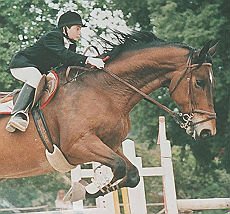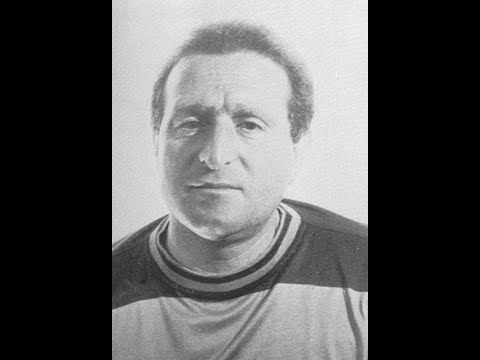
Alfonso Giordano, the Judge who presided over the Palermo maxi-trial against Cosa Nostra, today celebrates his 92nd birthday. Often overlooked, he played a key role, albeit a less dramatic one than Falcone & Borsellino, in its successful conclusion (photo, HuffPost) [Thread] >> 1 

When the decision was taken to hold a 'maxi-trial' against Cosa Nostra, on the basis of the investigations led by Giovanni Falcone (see thread linked below), one of the problems to be solved was the composition of the Court >> 2
https://twitter.com/NickWhithorn/status/1262099458877243392?s=19
In Italy, serious criminal offences are tried before a "Corte d'Assise" composed of two professional Judges & six so-called "popular Judges", similar to jurors in common law systems in that they're ordinary citizens. However, they're chosen from an updated list of volunteers >> 3
In Palermo, there were 11 Judges qualified to preside over a "Corte d'Assise". Two had underlying health issues & were excused as the trial was expected to last 18 months minimum. Eight others managed to avoid selection one way or another. The only one to accept was Giordano >> 4
Giordano was the least experienced "Presidente di Corte d'Assise" in Palermo, having been appointed just a few months earlier. He'd spent 24 years of his 34-year career in Civil Law, also teaching in this field at the University of Palermo & only 10 years in Criminal Law >> 5
Nonetheless, given the "reluctance" of his colleagues and despite considering the job, in his own words, "almost at the limits of human capability", Giordano accepted. Nor was he exaggerating when describing the responsibility in those terms if we consider the task he faced >> 6
He would have to deal with 475 defendants charged with 120 murders, drug trafficking, robberies, extortion & numerous other offences, including "associazione di tipo mafioso" (membership of or involvement in a mafia-type organisation), never before tested in a court of law >> 7
Over 200 defence lawyers would vie to delay proceedings on technicalities, especially since most of those held on remand would be released if the trial did not end by 8 November 1987. Thus, when the trial opened on 10 February 1986, Giordano set hearings for 6 days a week >> 8
The second Judge selected to assist Giordano was Pietro Grasso (on the left in the photo, Giordano on the right). Two substitute professional Judges & twenty substitute popular Judges were also chosen >> 9 

This was necessary as the trial would be long and, especially being against Cosa Nostra, the possibility of Judges falling ill, being intimidated, or even being killed had to be considered. As it turned out, some popular Judges had to be replaced for health/family reasons >> 10
As no normal courthouse could possibly hold the large number of people involved in the trial and to avoid the huge risks involved in transporting prisoners to and from the court every day, a new 'bunker' courthouse (photos) was built adjacent to Palermo's Ucciardone prison >> 11 



It was directly linked to the prison, had living quarters for the Judges if needed and could house over 1,000 people (defendants, lawyers, journalists, general public). It was even designed & built to withstand a missile attack >> 12
For a detailed account of the trial, see the thread linked below, which uses footage of the proceedings from a RAI documentary. Even if you don't understand Italian, you can hear the relaxed, informal, almost chatty style of Judge Giordano >> 13
https://twitter.com/NickWhithorn/status/1263047383560196096?s=19
This tolerant & relaxed approach to the proceedings, interspersed with occasional moments of severity when needed, undoubtedly contributed to bringing the trial to a successful conclusion. Many predicted the trial, the first of its kind, would collapse in chaos >> 14
On 11 November 1987, after 349 hearings, 1,314 defendants/witnesses examined & 635 concluding statements by defence lawyers, the Court retired to consider its verdicts. Unexpectedly, as they filed out, applause rang out from the defendants >>15
Just before the court adjourned, Michele Greco spoke. Even if you don't understand Italian, it Is interesting to listen to because it is a classic mafia style veiled threat, made directly to the presiding judge, Alfonso Giordano >> 16
Calmly, Greco wishes the judge "peace, tranquillity of spirit & conscience because serenity is fundamental when judging people". He continues, "I hope that this peace will accompany you for the rest of your life". Of course, everybody knew he was wishing the exact opposite >> 17
Even here, in the face of such an obvious threat, Giordano remains calm and relaxed, even responding when Greco wishes him peace and serenity, saying "that's something we all wish for." >> 18
The Court deliberated for 35 days, completely isolated from the rest of the world in the quarters inside the bunker, before returning on 16 December 1987 with the verdicts >> 19
The Court was composed of Alfonso Giordano & Pietro Grasso (photo, both sporting beards after 35 days), along with popular Judges Francesca Agnello, Maria Nunzia Catanese, Luigi Mancuso, Lidia Mangione, Renato Mazzeo & Francesca Vitale (their courage must not be forgotten) >> 20 

Alfonso Giordano took an hour & a half to read the verdicts: 346 convictions, 114 acquittals, 19 life sentences, a total of 2,665 years' imprisonment. The convictions largely stood up on appeal & before the Supreme Court of Cassation, which ruled finally on 30 January 1992 >> 21
Thus, the largest criminal trial in history came to an end. Alfonso Giordano went on to become President of the Court of Appeal in Lecce & then Palermo before retiring. Pietro Grasso continued to work in the antimafia field, becoming National Antimafia Prosecutor in 2005 >> 22
Both Giordano & Grasso dabbled in politics after their retirement, with contrasting fortunes. Grasso's national profile led to him be elected President of the Italian Senate, the second highest office of state in Italy after President of the Republic, in 2013 >> 23
Giordano, on the other hand, stood for election as Mayor of Palermo in 1993, arriving third. Perhaps, it is better that way. He may not be a household name but it would have been a shame to ruin his reputation in the quagmire of Sicilian politics >> 24
• • •
Missing some Tweet in this thread? You can try to
force a refresh






